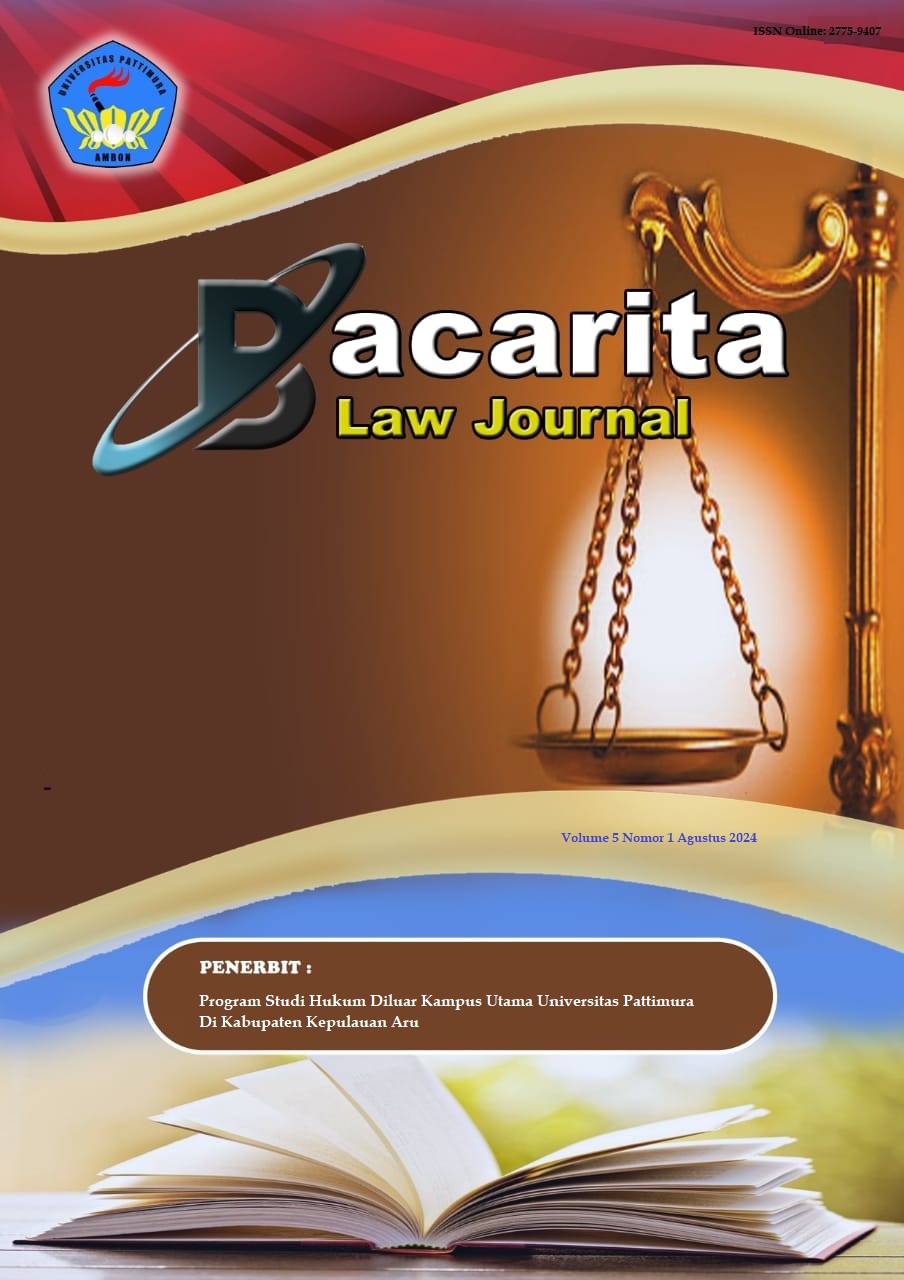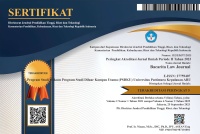Pengaruh Maraknya Kasus Perceraian Public Figure Terhadap Pandangan Masyarakat Umum Tentang Pernikahan Dalam Hukum Islam
Abstract
The divorce phenomenon that has occurred among artists in Indonesia recently has often been in the spotlight of netizens. In the virtual world and in the real world, divorce cases are a hot topic in Indonesian society today. The background to this research is the widespread news on social media about the phenomenon of female public figures, influencers or celebrities suing their husbands for divorce in court. There are various problems faced when living a married life, starting from cases of domestic violence, deviant behavior by the husband or wife, to infidelity. The method used by the author in this research uses qualitative research and library research, which emphasizes in-depth observation of a phenomenon which is then studied using scientific logic which refers to reading book literature, research journals, and statutory regulations, both Islamic law and law. positive. The research results explain that the impact of divorce, especially what happens to public figures, can cause various problems and negative impacts on those closest to them and people who receive information about the divorce. Views regarding the definition of marriage have become very complex due to the increasing number of divorce cases that occur.
Downloads
References
Jurnal
Anshori, Teguh. “Analisis Usia Ideal Perkawinan Dalam Perspektif Maqasid Syari’Ah.” Al-Syakhsiyyah: Journal of Law & Family Studies 1, no. 1 (2019). https://doi.org/10.21154/syakhsiyyah.v1i1.1827.
Farah, Adibul. “( Studi Atas Putusan Pengadilan Agama Kendal Perkara No . 0044 / Pdt . G / 2006 / PA . Kdl ).” IAIN Walisongo Semarang, 2008.
Gustiawati, Syarifah, and Novia Lestari. “Aktualisasi Konsep Kafa’ah Dalam Membangun Keharmonisan Rumah Tangga.” Mizan: Journal of Islamic Law 4, no. 1 (2018): 33–86. https://doi.org/10.32507/mizan.v4i1.174.
Huda, Mohammad Nurul, and Abdul Munib. “Kompilasi Tujuan Perkawinan Dalam Hukum Positif, Hukum Adat, Dan Hukum Islam.” Voice Justisia : Jurnal Hukum Dan Keadilan 6, no. 2 (2022): hlm. 9-10. https://journal.uim.ac.id/index.php/justisia/article/view/1970.
Matondang, Armansyah. “Faktor-Faktor Yang Mengakibatkan Perceraian Dalam Perkawinan.” Jurnal Ilmu Pemerintahan Dan Sosial Politik 2, no. 2 (2014): 141–50. http://ojs.uma.ac.id/index.php/jppuma.
Nurhalizah, Khusnul Khotimah, and Fitri Mustafa. “Fenomena Cerai Gugat Public Figure Akibat Suami Nusyuz Dalam Kajian Tafsir Ulama Dan Kompilasi Hukum Islam.” Jurnal Ilmiah Mahasiswa Hukum Keluarga Islam 1, no. 1 (2024): 15–27.
Putra, Kadir, Nina Ike Herawati, and Eko Alamsyah. “The Legal Properties of Marriage Agreements in Mixed” III (2021): 518–32.
Putra, Kurlianto Pradana, Suprihatin, and Oni Wastoni. “Makna Sakinah Dalam Surat Al-Rum Ayat 21 Menurut M. Quraisy Syihab Dalam Tafsir Al-Mishbah Dan Relevansinya Dengan Tujuan Perkawinan Dalam Kompilasi Hukum Islam.” Maslahah 12, no. 2 (2021): 15–34.
Rohman, Holilur. “Batas Usia Ideal Pernikahan Perspektif Maqasid Shariah.” Journal of Islamic Studies and Humanities 1, no. 1 (2017): 67–92. https://doi.org/10.21580/jish.11.1374.
Thahara, Esa, Egi Safitri, and Masyhari. “Cerai Gugat Akibat Perkawinan Paksa (Studi Kasus Perkara Nomor. 1189/Pdt.G/2021/Pa.Sbr Dalam Perspektif Psikologi Keluarga).” Jurnal Al-Naqlu 02, no. 01 (2021): 1–10.
Wibisana, Wahyu. “Pernikahan Dalam Islam.” Jurnal Pendidikan Agama Islam - Ta’lim 14, no. 2 (2016): 86–114.
Yudowibowo, Syafrudin. “Tinjauan Hukum Perkawinan Di Indonesia Terhadap Konsep Kafa’Ah Dalam Hukum Perkawinan Islam.” Yustisia Jurnal Hukum 1, no. 2 (2012): 98–109. https://doi.org/10.20961/yustisia.v1i2.10632.
Buku
Jamaluddin, and Nanda Amalia. Buku Ajar Hukum Perkawinan. Lhokseumawe: Unimal Press, 2016.
Rajai, Ahmad. Nalar Hukum Keluarga Islam Di Indonesia. Yogyakarta: Istana Publishing, 2015.
Shihab, M. Quraish. Pengantin Al-Qur’an: 8 Nasihat Untuk Anak-Anakku. Tangerang: Lentera Hati, 2015.
Skripsi, Tesis, Distertasi, Online/World Wide Web dan Lain-Lain
Himpunan Peraturan Perundang-Undangan Yang Berkaitan Dengan Kompilasi Hukum Islam Dengan Pengertian Dalam Pembahasannya. Jakarta: Mahkamah Agung RI, 2011.
Copyright (c) 2024 Angga Adi Pratama

This work is licensed under a Creative Commons Attribution-NonCommercial 4.0 International License.
Authors who publish their manuscripts in this Journal agree to the following conditions:
- The copyright in each article belongs to the author, as well as the right to patent.
- Authors are able to enter into separate, additional contractual arrangements for the non-exclusive distribution of the journal's published version of the work (e.g., post it to an institutional repository or publish it in a book), with an acknowledgment of its initial publication in this journal.
- Authors are permitted and encouraged to post their work online (e.g., in institutional repositories or on their website) prior to and during the submission process, as it can lead to productive exchanges, as well as earlier and greater citation of published work.
- Authors have the right to self-archiving of the article (Author Self-Archiving Policy)















